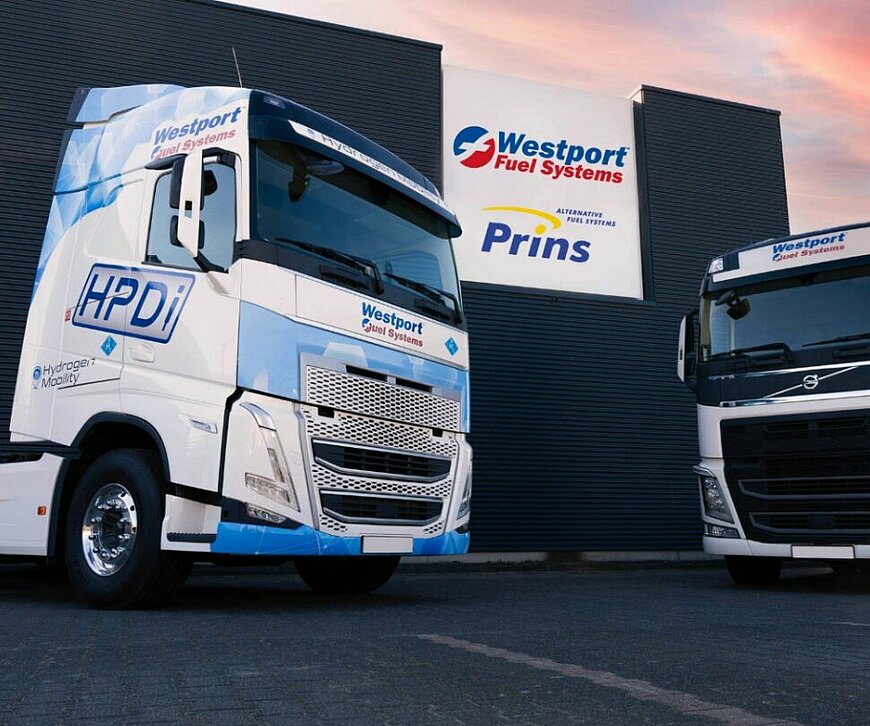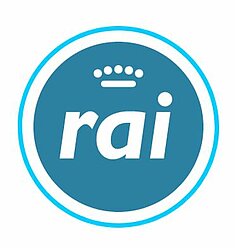In the Netherlands, the transition to hydrogen is gaining speed

The road transport sector is facing a historic challenge. How do we green an industry steeped in fossil fuels? A new zero-emission fuel will play a key role: hydrogen. In the Netherlands, RAI Automotive Industry NL is working to foster the next innovations in hydrogen.
European truck manufacturers are scratching their heads. What to do with industrial vehicles, which alone account for 25% of road transport emissions? According to Freek de Bruijn, programme manager for design and materials at the Dutch trade association RAI Automotive Industry NL, hydrogen is the mobility of a sustainable future. "In a time of international tensions, hydrogen will allow us to maintain our independence."
A sector looking to the future
With a relatively unknown but dynamic automotive sector, the Dutch market is now positioning itself as one of Europe's hydrogen technology centres. Their efforts will have a European impact, as 30% of European trucks are assembled in the Netherlands.
For Peter Kramer, head of development projects at DAF Trucks (Eindhoven), the challenge is just as clear:
"Hydrogen is a major energy source for the future of long-distance road traffic."
Besides its climate benefits, accelerating hydrogen development facilitates the transition towards a more self-sufficient European Union. "At present, the success of the green transition remains heavily dependent on solar panels and batteries produced in China," says De Bruijn. Hydrogen is an attractive alternative to these technologies.
Especially because, while the latest advances in IT are developed in the United States, Europe remains the true global leader in hydrogen. This is a major advantage if we want to independently achieve our climate targets for 2030 and 2050, emphasises the RAI programme manager.
The Dutch advantage: hydrogen innovation
Although the Netherlands has few major Original Equipment Manufacturers (OEMs), it is home to many innovative suppliers. "Our German partners used to say: ‘Let’s first see what the Dutch are doing with their eccentric ideas.’ Before ending up adopting our solutions!"
Among its more than 200 members, the RAI Automotive Industry NL trade association includes several true pioneers of sustainable automotive innovation, specialising in hydrogen. Notably DAF (Eindhoven) – truck manufacturer and one of the few OEMs in the country – as well as VDL (Eindhoven) and Westport Fuel Systems (Eindhoven).
The hydrogen fuel cell: a 100% green solution
Under the Green Transport Delta project, RAI member companies are developing their solutions to address the challenges of the hydrogen transition. This project is divided into three areas: developing hydrogen fuel cells, introducing hydrogen into conventional combustion engines, and designing a hydrogen infrastructure, from hydrogen filling stations to tanks adapted for this green fuel.
De Bruijn places particular emphasis on the first technology.
"Through electrolysis, the fuel cell converts hydrogen into electricity, without emissions." A promising solution, but not one for the immediate future. We will have to wait until 2030 before fuel cells can be deployed on a large scale.
At VDL Special Vehicles, a pioneer of high-temperature hydrogen fuel cells, Hans Bekkers, head of business development, highlights his company’s long-standing commitment to the hydrogen transition. "Our first hydrogen project dates back to 1998. Today, we are closely involved in European projects such as H2Share and H2Haul. In addition, VDL collaborates with Toyota Motor Europe."
Adapting for faster progress
For a more immediate solution, diesel engines could be adapted to run on hydrogen. "This would eliminate almost all emissions," says De Bruijn, "and what remains is negligible compared to the emissions of conventional engines." Westport Fuel Systems (Eindhoven) specialises in such adaptations. "They already work with OEMs such as Volvo. And why not, in the future, with French OEMs?"
Making hydrogen accessible to everyone
But before a hydrogen future can materialise, there are still obstacles to overcome. First and foremost, refuelling. "The availability of hydrogen along roads is crucial. Both in the Netherlands, France, and all the countries in between," says Kramer, echoing a common concern in the sector.
Here, De Bruijn does not forget to mention the Dutch SME Resato Hydrogen Technology (Assen). "Resato’s development of a hydrogen filling station is progressing rapidly," says the RAI programme manager. The advantage of Resato? The company develops and manufactures all the components of its filling stations in-house. De Bruijn is proud: "The refuelling innovations in the Netherlands are unique in the world."
Towards increased hydrogen partnerships
These Dutch innovations deserve to be tested and then deployed on a large scale. De Bruijn sees many collaboration opportunities, particularly between the Netherlands and France, whose industries can complement each other. "One is a nation of innovation, the other of large-scale industry."
Following a series of very successful visits to French partners on the sidelines of the Hyvolution 2024 trade fair, De Bruijn hopes to intensify collaboration with French companies. With partners such as Total Energies and Airliquide, he envisions accelerating progress in refuelling infrastructure.
He also hopes that French OEMs – Stellantis, Renault – and pioneering initiatives such as Hyvia will increasingly seek out Dutch suppliers. This ambition is shared by Bekkers: "By collaborating with French partners, we can accelerate innovation, reduce costs, and promote sustainability."
"Suppliers, OEMs, and governments must collaborate on legislation, testing protocols, and implementation," says Bas ten Broeke, technical director of hydrogen at Westport Fuel Systems. France and the Netherlands should work together to shape smart legislation within the EU, he advises. According to Ten Broeke, this is an opportunity for France and the Netherlands to set a good example for the rest of Europe. "So that end users can finally benefit from the new hydrogen infrastructure we are developing, as well as from our short- and long-term applications."
What’s next?
Curious about where you can find RAI and its members in France? The association will be present again at the Hyvolution fair in Paris with a delegation of its members from 28 to 30 January 2025. In addition, the Dutch automotive industry will be represented at the Solutrans heavy-duty fair in Lyon from 18 to 22 November 2025. For more information on composites, and key materials for hydrogen storage, visit the JEC fair in Paris from 4 to 6 March 2025.
